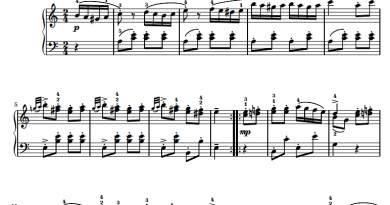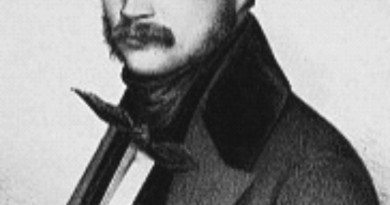Piano didactic – tips for teachers
The teaching of beginners can and ought to be made interesting, but in order to make it so, the teacher himself must be interested. It is at any time interesting to teach children, to study their disposition, to watch the operations of their minds, to observe how their mind and character develop, to see the result of your labors, etc. This is the most interesting work any man can be engaged in. He who is not interested in it lacks the very first qualifications of a teacher.
Music teachers no doubt have observed that young pupils become weary with lengthy music lessons. It is hotter at first to give daily lessons, and to make them shorter, than to give two lessons a week each three quarters of an hour long.

If this cannot be done, we would advise you to enliven your lessons by telling the children some musical stories. Much of that kind of information may be made profitable as well as interesting. After such diversions return to your lessons and you will find that your child’s mind is refreshed. The rudiments themselves, though apparently dry and uninteresting may be made entertaining, if the teacher has the necessary ability. An incentive and original turn of mind enables the teacher who loves his work to infuse life into any subject he may take in hand. In fact, the genuine teacher will never be at a loss for want of interesting illustrations and effective explanations.
Tips and didactic for piano teachers
The first lessons are of most importance, the first teacher lays the foundation for all future musical education. You can therefore not be too careful and too conscientious. No matter how carefully the teacher may, however, have been, in many cases, he finds that his pupils have not only failed to remember his instructions, but have actually acquired bad habits during practice hours. Thus, the teacher is not only compelled often to go over the same lesson, but also to counteract bad habits that have been acquired. Much time is thus wasted, and it were better if young pupils, at least in the first quarter could have some one with them while they practice. Such assistance ought of course to be present in the lesson to hear all instructions given. This would save much time and prevent many annoyances both to the pupils as well as to teachers.
Aim at a good technique. A pupil with but little sentiment but possessed of a good technique may play some things well; he, however, who has no technique, no matter how poetic and appreciative he may be, will never accomplish much as a player.
Music didactics for piano teachers
By the side of a good technique do all, you can to develop correct sentiment. Whatever you do, do well. It is better that your pupil play one piece perfect, than that he have a dozen each one of which is marred by imperfection. Perfection inspires, it makes pupils ambitious arid gives them self-confidence. Have a definite course in view with each pupil, do not hasten, review constantly, and see to it that your pupils play something by heart. Explain everything in connection with the niece your pupil is studying, but at the same time allow the pupil’s individuality to develop.
Be true to your convictions as a teacher. Yield to the wishes of parents and pupils whenever you can do so without sacrificing a principle but rather than do this, give up your pupil. You will be the gainer in the end, for steadfastness in principle is sure to commend itself. Always do good work, make your daily duty a pleasure, and keep alive within you a full appreciation. of the high mission of art, and strive faithfully to be true to it.



